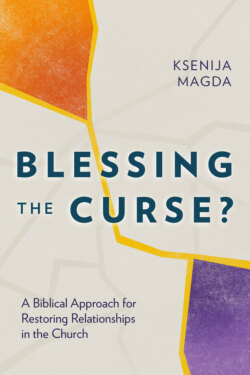Читать книгу Blessing the Curse? - Ksenija Magda - Страница 17
На сайте Литреса книга снята с продажи.
Sustainability & Migration
ОглавлениеSustainability refers to efforts to respond to the ecological devastation of the earth and the real shortages of food and water that will impact many places on the planet – though there is enough food for all at the moment. Many anticipate that this devastation will cause wars in the future, particularly since the war industry has never been as advanced and innovative as it is now. If the entertainment industry can be seen as prophetic – and they have been in the past – the scenario for sustainability is bleak.
Through the anti-terrorism acts in the West, people are giving up privacy for security. Even the mandatory “cookies” that automatically spy on our internet preferences can be used against us, as the system can be used to prohibit our individual decision making. One diabolical human mind who thinks he is God can do great evil when given access to so much information and power. Though this is not a new concern, it has become more threatening because of the power of the technology to reach out globally.
This scenario has already been described in the Bible. Revelation describes the “universal” circumstances of the Roman Empire and how its “divine” ruler and “lord” could use those circumstances against Christians who wanted to remain loyal to God. In Homo Geographicus, Robert Sack refers to humans in a global society as Leviathans – the monstrously dangerous biblical beast[10] – precisely because of how their impact on the earth is being multiplied.[11] In antiquity, the Roman Empire was not really universal, and it lacked technologies for perfect surveillance, but in our global era that is supported by so many technologies, those who are considered to be outcasts struggle to live outside of the system. This tragedy is already visible in the migrant crises and the way that the world is handling “migrants.” According to the UN, almost 300 million people roamed the world as migrants in 2019, and few found shelter.[12] Once on the move, people risk becoming permanently homeless. For instance, refugee camps were established in 1985 in the northwest of Thailand for the Karen people from Burma (today Myanmar), and they are still being run as refugee camps today. Even worse, the Rohingya people, a Muslim group, has been hosted by Bangladesh in a refugee camp since 1975, with no developments. People live as permanent outcasts with little prospect of a future. Those who are by definition “earthlings” and are bound to their places have become displaced and declared placeless by others. Though this story is hard and disturbing, it is even more disturbing that so many “good” Christians are driven by fear and despise refugees. These Christians have never contemplated the implications of Psalm 24: “The earth is the LORD’s and all that is in it, the world, and those who live in it” (v. 1). God, the giver of life, calls everyone into being on this earth. While life may be easier when we live among those who have been socialized in a similar way, we will inevitably undergo the experience of meeting others who are very different. When migrants come to live near us, or when we have to migrate, we are forced into this situation.
Yet migration happens for a reason, and a commitment to basic human rights must allow space for it. Our fear of migrants stems from our fear of the other, but it is nurtured by our medieval tradition of land ownership. Those who rule a nation make the laws, and religious laws are particularly important for uniformity – cuius regio, eius religio (whose realm, his religion). Yet in this belief, the structures of sin victimize others and deny them the right to existence. Christians cannot bless this curse by blaming the victims for the “crime” of looking to find a place to live.
